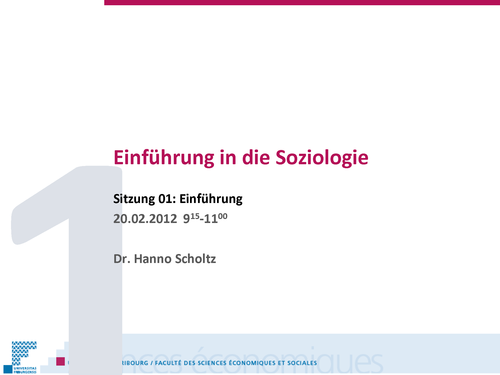
Welcome to my homepage.
After experiences outside of academia and at the universities of Mannheim, Berlin (FU), Zurich, Berne, Leipzig, and Konstanz, I am currently finishing a book on understanding recent changes in society.
At vizify, you can find a nice visual bio of me. However, publications and teaching experience are provided in the respective sections here, and in a complete list in my pdf cv. (Natürlich gibt es auch eine deutsche Version, auch wenn diese Seite sonst Englisch ist.)
Having completed a Diploma in Economics and a Ph.D. in Political Science, in my book I use some Rational Choice methodology (a kind of sociological reasoning close to economic modeling) and derive some policy recommendations. However, it is a study to explain in the most parsimoneous way what happens currently and over the last century in the whole society - worldwide. You find some info on the idea of this book in the respective section. The other sections of this site relate to my publications, my teaching experience and my services to the community, currently in the RCs on Rational Choice and on Comparative Sociology of the International Sociological Association.
As background for this site I have chosen Paris' choice between Athena, Juno, and Venus which in its consequence led to the Trojan war - a picture already used for the website of the International Sociological Association's Research Comittee RC45 on Rational Choice under my presidency. I love this picture - as RC45 chair because it describes an individual choice with social consequences and for my own research because it implies the long historical horizon we sometimes need to understand current things.
More research

This picture shows me at the presentation of recent results on income elasticities as determinants of fertility in cross-national comparison, a project I conduct together with my two colleagues Daniel Degen and Sebastian Schnettler, both University of Konstanz.
However, the main topic of my previous research have been
- Democracy and democratization
- Social inequality
- Long-term social change
- Evaluations of social inequality
A list of my publications is included in my pdf cv.
Teaching

Coming soon. Inbetween, see the complete list in my pdf cv. While most of my research work has been done in English, the bulk of my teaching experience has been in German, so I still contemplate in which language this page should be done... :-)
My current book

There is a number of current social phenomena which for historically informed commentators may produce the feeling of a déjà vu, the “feeling that you are having exactly the same experience as one you have had before” (even though the word “exactly” from Macmillan’s dictionary explication cited here may not be fully convincing).
- Since 2008, we are discussing about economic crises, and in many respects commentators turn to the Black Friday of 1929 to study parallels and differences.
- In the 1990s, we discussed a lot about globalization. The process is still going on, but we have learned that in 1913 there had already been a relative level of global trade that was surpassed only in 1992.
- The Arab spring has continued what Samuel Huntington has called the "Third wave" of democratization. Forget for a moment the second wave, which was only a restoration after 1945. But there has been a first wave, ending in 1922 but going well back into the 19th century.
- The attacks of 9/11, violence in the form of being a successful strike against a central symbol of a major power and succeeding in creating war, 9/11 is compared with the assassination of Archduke Franz-Ferdinand on 28 June, 1914, which started WWI.
- Since the 1980s, social inequality has been risen, starting in the U.S. and Britain, but reaching almost all advanced Western societies. This increase is a major social problem, but nothing compared to the increase in social inequalities in the 19th century.
- A last parallel is indeed an anti-parallel: Global shifts occur currently which bring nations as China, India, Brasil, or South Africa to new power in global relations. After decades of a stable rank order, this change only mirrors the ascent of the Western world around 1900.
The thesis is not new that these changes are related and mark the advent of "post-industrial society" or even of a "second modernity".
However, none of the scholars engaged in this debate applied Rational Choice methods. And although the understanding of important macro-sociological phenomena (as these parallels surely are) from a micro-perspective is an important task in Rational Choice sociology from its very beginnings, no Rational Choice sociologist has yet tackled the question.
Therefore, in my current book I tackle the general question: What can Rational Choice theory add to understanding these parallel processes?
As a Rational Choice perspective frames these parallel processes as transitions between equilibria, this question can be further specified: As far as two transition processes are concerned, one from agrarian to industrial society, the other from industrial society to some third phase, and as far as the current transition seems to be not yet completed: What can be learned from the parallel, i.e. derived in predicting further change?
Write my a mail if you are interested in the result - or come back soon. :-)